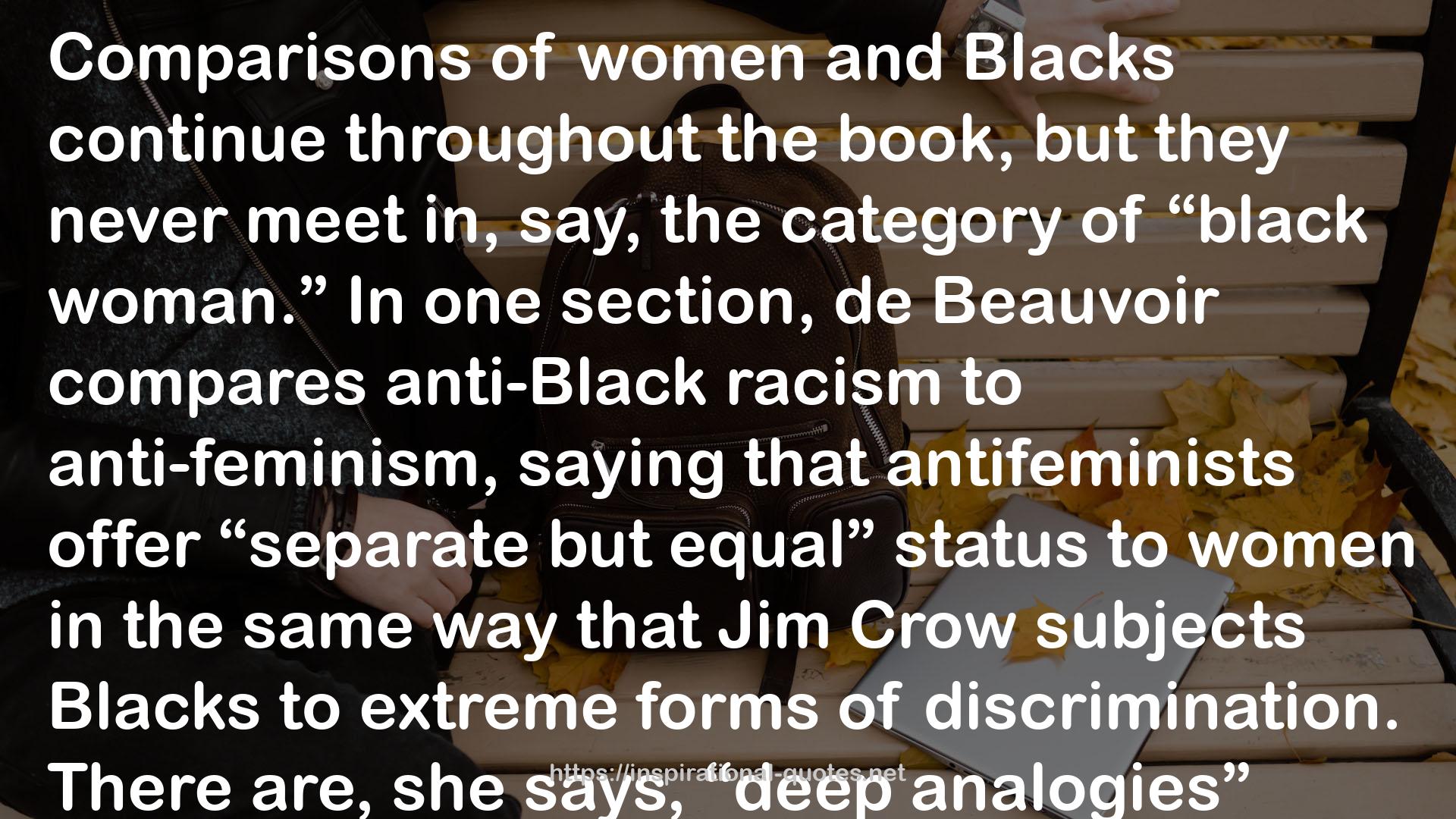" Comparisons of women and Blacks continue throughout the book, but they never meet in, say, the category of “black woman.” In one section, de Beauvoir compares anti-Black racism to anti-feminism, saying that antifeminists offer “separate but equal” status to women in the same way that Jim Crow subjects Blacks to extreme forms of discrimination. There are, she says, “deep analogies” between women and Blacks; both must be liberated from the same paternalism and master class that wants to keep them in their place. In every comparison that de Beauvoir makes between women and Blacks, however, the Blacks are assumed to be American and male and the women are assumed to be white. In The Second Sex, she uses the character Bigger Thomas in Richard Wright’s Native Son to evoke the parallel—but not intersecting—situation of women: “he watches planes pass and knows that because he is black the sky is out of bounds for him. Because she is woman, the girl knows that the sea and the poles, a thousand adventures, a thousand joys are forbidden to her: she is born on the wrong side.”9 It does not seem to occur to her that one could be oppressed by both of these systems, race and gender. "
― Rafia Zakaria , Against White Feminism: Notes on Disruption
